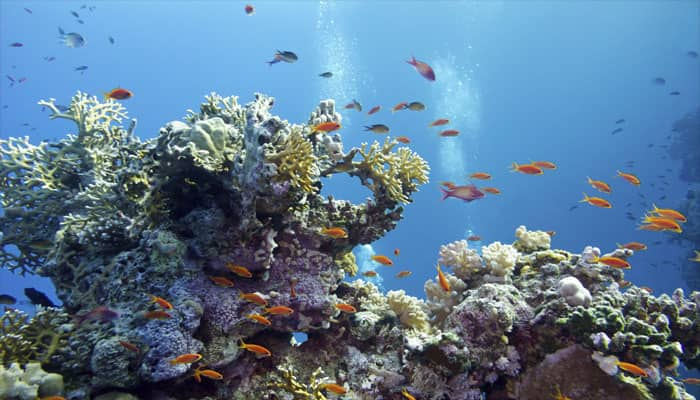New York: Driven by climate change and persistent underwater heatwave, our oceans are now facing third global coral bleaching event that could impact approximately 38 percent of the world’s coral reefs by the end of this year and kill over 12,000 square kilometres of reefs, scientists have warned.
Coral bleaching occurs when corals are exposed to stressful environmental conditions such as high temperature. Corals expel the symbiotic algae living in their tissues, causing corals to turn white or pale. Without the algae, the coral loses its major source of food and is more susceptible to disease.
"The coral bleaching and disease, brought on by climate change and coupled with events like the current El Nino, are the largest and most pervasive threats to coral reefs around the world," said Mark Eakin, coral reef watch coordinator at US National Oceanic and Atmospheric Administration (NOAA).
The first global bleaching event was in 1998, during a strong El Niño that was followed by an equally very strong La Nina. A second one occurred in 2010.
The current bleaching event, which began in the north Pacific in summer 2014 and expanded to the south Pacific and Indian oceans in 2015, is hitting US coral reefs disproportionately hard.
By the end of 2015, almost 95 percent of US coral reefs will have been exposed to ocean conditions that can cause corals to bleach, NOAA estimated.
“What really has us concerned is this event has been going on for more than a year and our preliminary model projections indicate it is likely to last well into 2016," Eakin said.
Although reefs represent less than 0.1 percent of the world’s ocean floor, they help support approximately 25 percent of all marine species.
As a result, the livelihoods of 500 million people and income worth over $30 billion are at stake, the report said.
This announcement made on Thursday stemmed from the latest NOAA Coral Reef Watch satellite coral bleaching monitoring products, and was confirmed through reports from partner organizations, especially the XL Catlin Seaview Survey and ReefCheck.
















